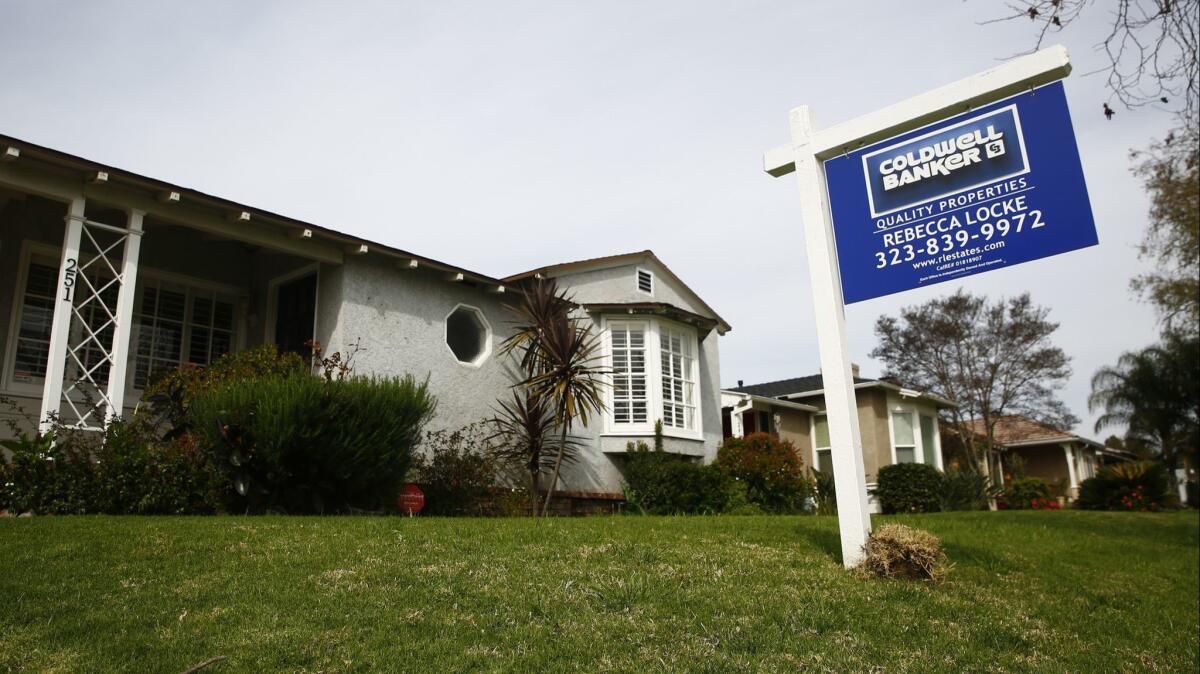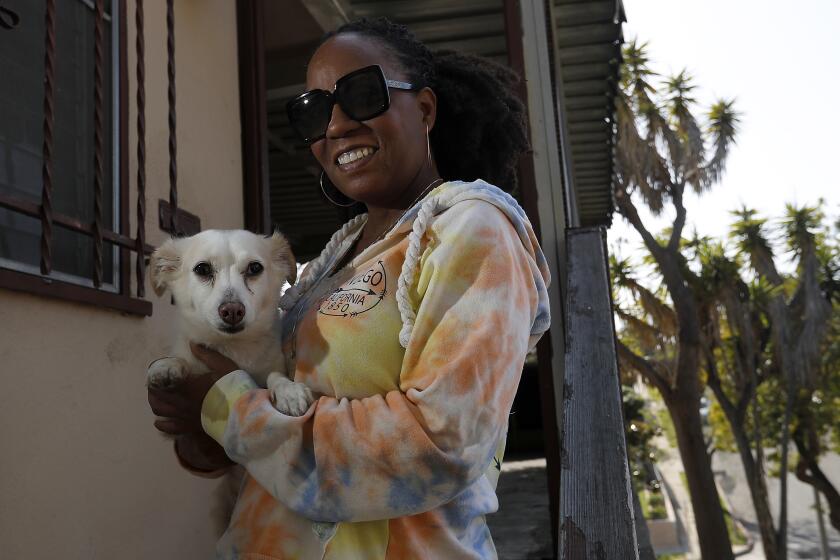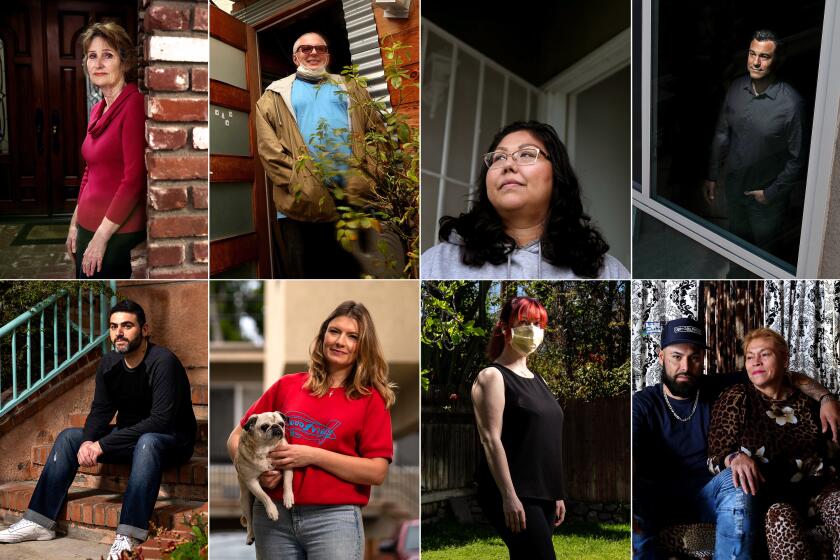Southern California home sales are plunging. Prices haven’t followed, yet

- Share via
The Southern California housing market has seized up.
The coronavirus outbreak has closed businesses and kept people hunkered down in their homes. Perhaps unsurprisingly, it’s also resulted in a market that experts describe as essentially frozen.
Data released Thursday from real estate company Zillow show the number of deals entering escrow has fallen off a cliff since mid-March. But so too has the number of owners who are listing their house or condo for sale.
Because the market isn’t being flooded yet with listings, lower demand is being met with lower supply, and prices are holding relatively steady.
Jeff Tucker, an economist at Zillow, summed it up as such: “Like a canoe being carried by two people who drop both ends simultaneously, the market slowdown may not tip clearly in favor of buyers or sellers.”
That surely could change as the pandemic progresses. On Thursday, the U.S. Labor Department reported that 4.4 million Americans filed for unemployment benefits last week, bringing the total since mid-March to about 26 million people.
The housing market has taken a hit as the coronavirus has spread. However, some buyers are still moving forward.
As more homeowners struggle to pay their mortgages, more homes could be forced onto the market.
In the week that ended April 19, home buyers in Los Angeles and Orange counties signed sales contracts for nearly 60% fewer homes than the same period last year. Similar declines were seen a week earlier.
Traditional housing market indicators are based on closed deals, meaning that March sales data mostly reflect deals that entered escrow in February and even January — a time before stay-at-home orders and widespread concern over death tolls.
The data from Zillow cover so-called pending sales — when a buyer enters escrow — and provide a more current look into the virus’ effect on the housing market.
Judging by the sharp drop-off in listings, not only are fewer owners putting their homes up for sale, but also some have outright pulled them off the market.
Real estate agents say some sellers don’t want people touring their homes during a global pandemic. Others simply don’t need to sell and are holding back to see how the current situation evolves.
The number of homes on the market during the week that ended April 19 fell nearly 31% from a year earlier, according to Zillow.
There are signs that prices are softening. The median list price in Los Angeles and Orange counties was $856,575 in the week that ended April 19, according to Zillow. That’s down about 7% from mid-March but still 7% higher than the same period last year.
Normally, when the housing market slows, sales are the first shoe to drop because owners are hesitant to take less money. As homes go unsold, inventory swells and sellers eventually give in, forcing prices downward.
The Times spoke with four landlords and four tenants across Los Angeles County to understand how they’re coping with the fallout from the coronavirus.
But unlike the crash of 2008 or the relatively minor slowdown in 2018 and 2019, inventory isn’t rising. It’s falling.
“These are really unusual times,” Tucker said. “This external force that is driving buyers out of the market is also a pretty good reason for sellers to hold off from selling. People are literally worried about the health of having a bunch of strangers and real estate agents come through their home.”
In some cases, as in the city of Los Angeles, in-person showings of homes are banned to slow the spread of COVID-19, the disease caused by the coronavirus. Home sales can still continue, but the pool of people willing to buy a house without first walking through it is limited.
Research from Zillow indicates a similar situation played out in Hong Kong in 2003 during the outbreak of severe acute respiratory syndrome, or SARS. Home prices didn’t fall much, while the number of transactions plunged as people kept their distance from one another to save lives. The market, along with the economy, then bounced back once the epidemic was over.
SARS lasted several months in Hong Kong and killed 774 people worldwide. In the United States alone, almost 50,000 have lost their lives to COVID-19 so far. And social distancing edicts, or surges in the death count from relaxing measures, could roil the economy for many months to come.
The federal government has stepped in to provide relief in the form of cash payments and mortgage forbearance. But if people remain out of work for long, more would probably be forced to sell their homes or even enter foreclosure. In that case, supply would rise at a time of depressed demand, raising the prospect for full-scale price declines.
More to Read
Sign up for Essential California
The most important California stories and recommendations in your inbox every morning.
You may occasionally receive promotional content from the Los Angeles Times.









